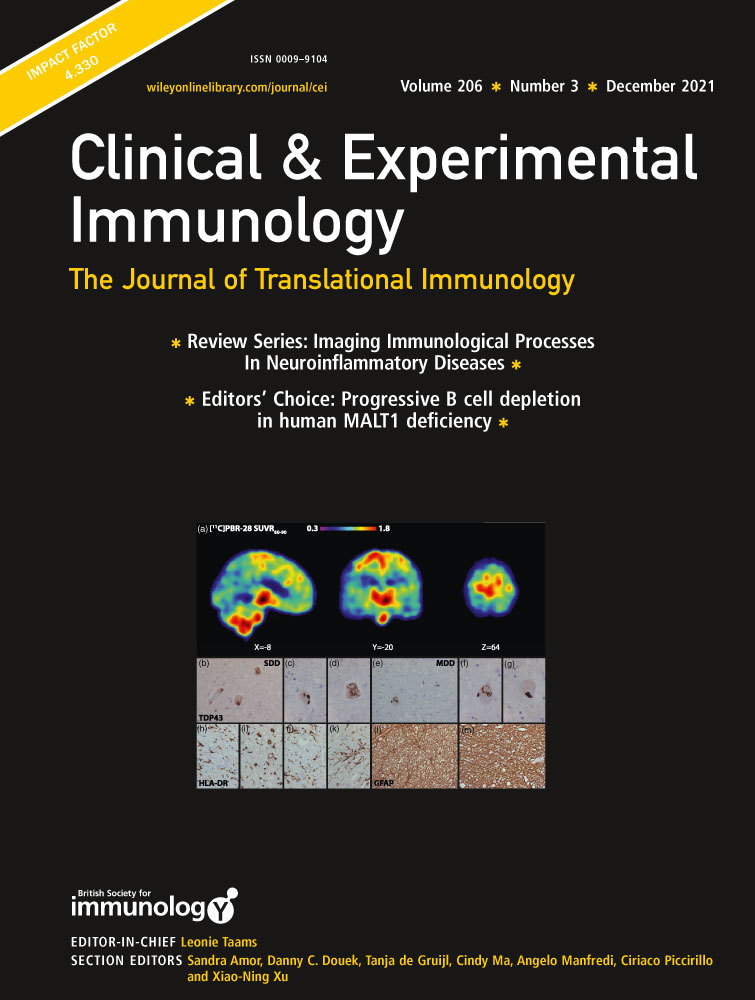Inhibition of enzyme function by human autoantibodies to an autoantigen pyruvate dehydrogenase E2; different epitope for spontaneous human and induced rabbit autoantibodies
R. Uibo's present address: University of Tartu, Estonia, USSR.
SUMMARY
Antibodies to the mitochondrial autoantigen M2, characteristic or the autoimmune liver disease primary biliary cirrhosis (PBC), react with the E2 subunit of the pyruvate dehydrogenase enzyme (PDH-E2). We examined the effect of disease sera on the enzyme activation catalysed by the PDH complex. Inhibition of enzyme activity was observed in 19 of 24 sera of patients with PBC with a level of >90% inhibition in 14 at a serum dilution of 1/50. The onset of inhibition by serum was rapid, within the time of mixing, and the inhibitory activity was shown to reside in the immunoglobulin fraction of the serum. The immunoglobulin fraction of control sera from patients with other liver diseases (n= 26) and healthy persons (n= 8) failed to produce inhibitory activity. In addition sera from four rabbits, intensively immunized with a recombinant human M2 autoantigen, gave anti-M2 reactions by fluorescence, ELISA and immunoblotting, but did not inhibit the activity of PDH. The failure of experimentally induced M2 antibodies in rabbits to inhibit is interesting in view of the reactivity of the natural M2 autoantibodies of FBC with the highly conserved site on the enzyme which carries the essential lipoic acid cofactor.




